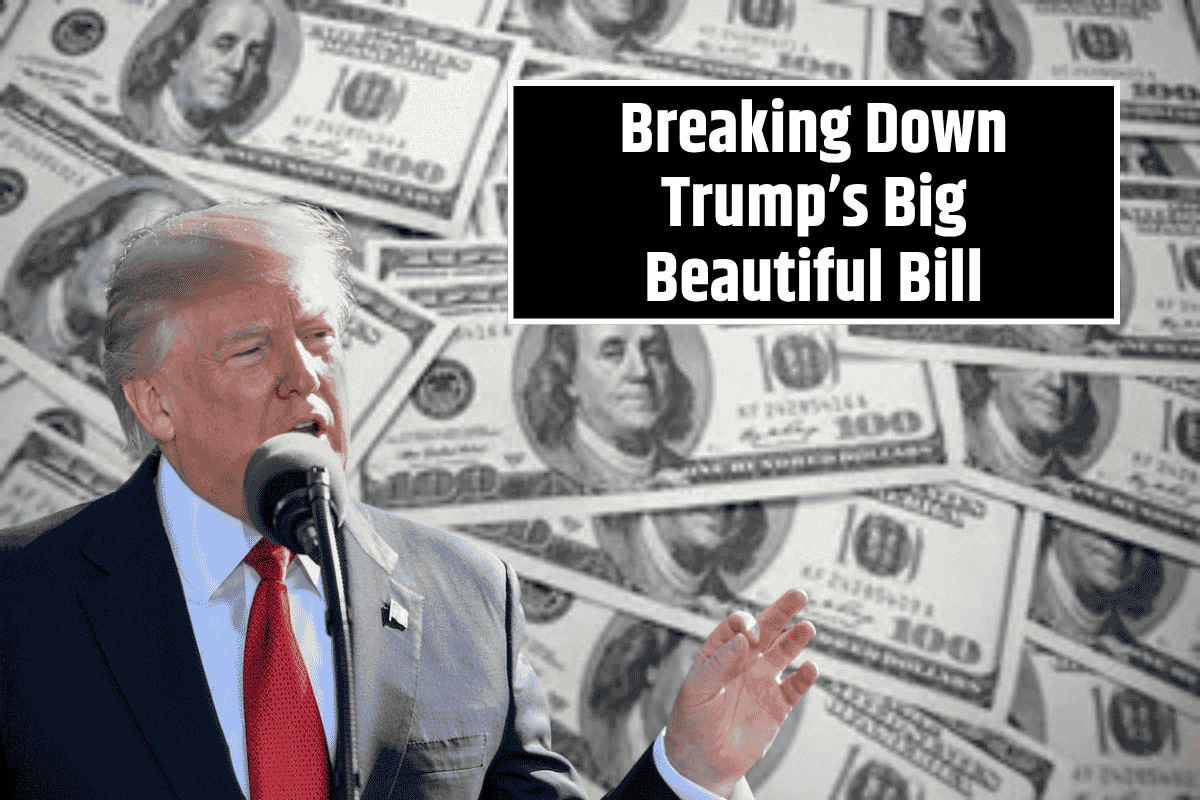The One Big Beautiful Bill Act (OBBBA) is a sweeping piece of budget reconciliation legislation that brings together large tax cuts and significant changes to key social programs. While it promises economic benefits for some, it has sparked heated debates about its impact on equity, fiscal sustainability, and vulnerable populations.
Below, we will break down the major provisions of this bill, touching on tax adjustments, changes to social programs, and its overall financial implications.
Key Tax Provisions of OBBBA
One of the central features of OBBBA is the permanent extension of tax cuts from the Trump administration. These cuts affect individual tax rates, which will remain between 10% and 37%. This change primarily benefits higher earners but also offers specific advantages for families and low-income workers.
Expanded Child Tax Credit: Families with children will see an increase in the child tax credit from $2,200 to $2,500, providing much-needed financial relief.
Low-Income Worker Benefits: Workers in low-income brackets can now deduct tips and overtime pay, up to $25,000, helping those who often rely on these income sources.
Senior Deductions: Seniors will be eligible for up to $6,000 in deductions aimed at offsetting the impact of Social Security taxes.
However, not all changes are widely popular. The bill introduces a 1% tax on remittances, which will directly impact migrant communities. Additionally, elite universities with large endowments will face up to 8% in taxes on those endowments, a provision designed to generate more revenue from wealthy institutions.
A notable provision includes the introduction of “Trump Accounts”, a tax-advantageous savings option for education and housing. Critics argue that these accounts benefit those who can afford to save, leaving lower-income individuals behind.
Changes to Social Programs: Medicaid and SNAP
The bill brings significant changes to two key social programs: Medicaid and SNAP (Supplemental Nutrition Assistance Program). These changes are particularly controversial because they reduce the safety nets available to millions of Americans.
Medicaid Work Requirement
Under OBBBA, individuals between the ages of 19 and 64 must meet 80 work hours each month to maintain their Medicaid coverage. This shift is expected to leave approximately 10.9 million people without health insurance.
Studies predict this change could result in over 51,000 preventable deaths each year, primarily affecting those in low-income and vulnerable groups.
SNAP Changes
The OBBBA proposes several cuts to the SNAP program, which is crucial for many low-income families. These include:
Spending Cuts: The Senate version of OBBBA proposes cutting about $186 billion from SNAP through 2034. Combined with House proposals, these cuts could amount to hundreds of billions over the next decade.
State Cost-Sharing Requirement: Starting in fiscal year 2028, states will be required to share a portion of SNAP costs. States with low error rates will pay 5%, while those with higher error rates could be responsible for up to 25%.
Expanded Work Requirements: The bill introduces stricter work rules for Able-Bodied Adults Without Dependents (ABAWDs), potentially disqualifying over 2 million people from receiving SNAP benefits.
Benefit Caps: The bill ties future SNAP benefit increases to general inflation rather than the Thrifty Food Plan, which could reduce benefits by about $35 billion over the next 10 years.
Administrative Cost Sharing: Federal reimbursement for state administrative costs will be reduced from 50% to 25%, increasing the financial burden on states and local governments.
The Immigration and Border Security Provisions
OBBBA also includes provisions aimed at increasing funding for border security, with $170 billion allocated to this area. This includes a hefty $46.5 billion specifically for the construction of the border wall.
Additionally, Immigration and Customs Enforcement (ICE) will receive a significant budget increase, surging by 365% to fund 100,000 new detention beds and the capacity for 1 million deportations annually. To help fund this, new fees will be introduced, such as a $100 charge for asylum applications and a $550 fee for work permits.
Energy and Environmental Changes
In an unexpected move, OBBBA also eliminates green tax credits for solar, wind, and electric vehicles starting in 2026-2027. This is seen as a step back for the transition to renewable energy. Meanwhile, subsidies for biofuels and metallurgical coal are expanded, potentially costing 830,000 jobs and raising energy prices by 50% by 2035.
Financial Implications and National Debt
The fiscal impact of OBBBA is staggering. The Congressional Budget Office (CBO) estimates that the law will add a significant $2.8 trillion to the national debt by 2034, reducing revenue by $4.46 trillion over the next decade.
While the White House celebrates the $10,000 in annual savings for typical families, economists like Paul Krugman warn that the law’s cuts to social programs could deepen inequality and worsen the nation’s economic divide.
The bill also accelerates the insolvency of Social Security and Medicare by one year, raising concerns about the long-term sustainability of these essential programs.
The One Big Beautiful Bill Act is a complex piece of legislation that promises significant tax benefits for some while imposing harsh cuts to social programs that help the most vulnerable populations.
While the tax provisions and savings for families may seem attractive, the bill’s impact on Medicaid, SNAP, and the environment could exacerbate social inequalities and strain state budgets.
The future success of the bill depends largely on which side of the economic divide you find yourself on, making it a deeply divisive issue with long-term consequences.
